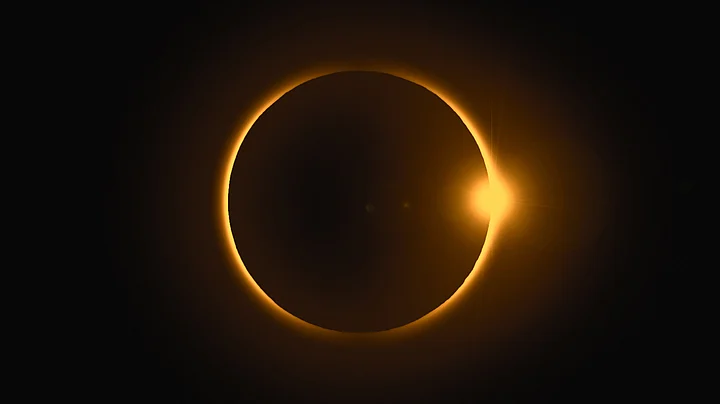India will witness a partial solar eclipse on 25 October 2022, just one day after Diwali 2022, according to the Ministry of Earth Science.
The eclipse, which will occur in India in the hours before sunset, will be visible from most parts of the country, however, it will not be visible from the Andaman & Nicobar Islands and some parts of north-east India including Aizawl, Dibrugarh, Imphal, Itanagar, Kohima, Sibsagar, Silchar, and Tamelong among other parts.
When can you see the solar eclipse? What precautions should you take? And what else do you need to know?
Before we proceed, a quick reminder: You should never look at a solar eclipse with your naked eye, even briefly.
Now, onwards.
What causes a solar eclipse?
A solar eclipse is the result of the moon passing between the sun and the Earth, obscuring the Earth's view of the sun either partially or totally. Solar eclipses also coincide with a new moon.
Solar eclipses are of two types: partial and total. Partial eclipses, also referred to as annular eclipses, leave a part of the sun exposed.
In a total eclipse, the Sun is fully obscured by the Moon.
When will the solar eclipse be visible?
According to the Ministry of Earth Science, the solar eclipse will begin in India before sunset, in the afternoon. The end of the solar eclipse, however, won't be visible from India, the Ministry added.
The eclipse will be begin in the following parts at the following times:
Delhi - 4.29 pm
Mumbai - 4.49 pm
Bangalore - 5.12 pm
Kolkata - 4.52 pm
Chennai - 5.14 pm
Bhopal - 4.42 pm
Hyderabad - 4.59 pm
Kanyakumari - 5.32 pm
This is not the full list of places the eclipse can be viewed from. For the full list of locations and time the solar eclipse will be visible, click here.
Where will the solar eclipse be visible from?
Outside of India, the partial solar eclipse will be visible in the region covering Europe, the Middle East, north-eastern parts of Africa, western Asia, the North Atlantic Ocean, and the North Indian Ocean, according to the Ministry of Earth Science.
From India itself, the eclipse will be visible from most parts, save for the Andaman & Nicobar Islands and parts of the north-east, like we mentioned earlier.
Here's a list of some other places the eclipse can be seen from:
Agartala
Ahmedabad
Ajmer
Allahabad
Amritsar
Bangalore
Bhagalpur
Bhopal
Bhubaneswar
Cannanore
Chandigarh
Chennai
Darjeeling
Cuttack
Hyderabad
Hubli
Jaipur
Jammu
Jalandhar
Pondicherry
Ranchi
Srinagar
Varanasi
Vijaywada
This isn't the complete list of places the eclipse can be viewed from. You can see the full list here.
How can you safely view the solar eclipse?
You need special eye protection and/or indirect viewing methods to watch the sun during a partial or annular solar eclipse. Regular sunglasses won't protect your eyes from the damage of staring at the sun. Purchase certified and properly designed solar filters if you want to view the eclipse.
The safest way to watch a solar eclipse is via indirect projection.
Indirect projection can be done by using a pair of binoculars with one lens covered and by projecting the sun's image through the binoculars onto a piece of white paper. This image can then be viewed either with a telescope, or with a piece of cardboard with a 1 mm hole in it, called a pinhole camera.
While you do this, you need to make sure you never look through the pinhole camera or telescope directly at the sun.
You can also view the sun on a video display from a camera, but the camera is likely to suffer damage from the process.
What could happen if you look at a solar eclipse without the right protection and precautions?
Staring at the sun directly, even for a few seconds can lead to permanent damage to your retinas. This is because of high-intensity visible and invisible radiation from the sun's photosphere. The damage can lead to impaired vision and in worse cases, permanent blindness. And, since your retinas don't have pain receptors, it's impossible to feel the damage, and you could go blind in a matter of hours without ever knowing you were injured.
So, with that caveat, there are a few safer ways to watch a solar eclipse.
When is the next solar eclipse that will be visible from India?
The last solar eclipse in India was a total solar eclipse on 4 December 2021. The next solar eclipse will be on 2 August 2027, and will appear as a partial solar eclipse from most parts of India, according to the Ministry of Earth Science.
